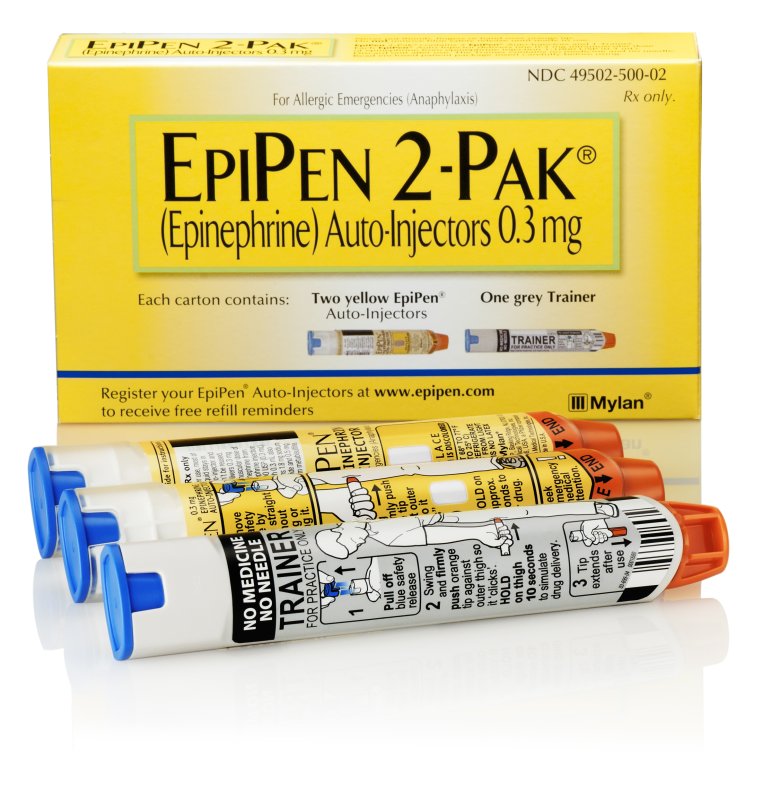The Food and Drug Administration gave Teva Pharmaceuticals approval Thursday to create the first generic version of Mylan's EpiPen auto-injector. File Photo courtesy Mylan
Aug. 16 (UPI) -- The U.S. Food and Drug Administration gave approval Thursday for the first generic version of EpiPen, an injection device to treat severe allergic reactions.
The agency granted the approval to Teva Pharmaceuticals to create generic versions of both the standard auto-injector and the EpiPen Jr. for children.
"The path to developing generic drug-device combination products like this one is challenging," FDA Commissioner Scott Gottlieb said. "We remain committed to doing our part to provide scientific and regulatory clarity for sponsors seeking to develop complex generics, as well as prioritize the approval of medicines with little or no generic competition as part of our overarching effort to remove barriers to generic development and market entry of critically important medicines."
EpiPens contain epinephrine, which treats anaphylaxis. Although there are other brands and generic options, including one from CVS, drug maker Mylan has cornered the market on the auto-injectors with the hugely popular EpiPen and EpiPen Jr.
Mylan and its CEO, Heather Bresch, were accused of price-fixing last August when prices of EpiPens skyrocketed to $600 for a two-pack of the life-saving drug. Since then, there's been a rush to make less expensive generic alternatives.
"This approval means patients living with severe allergies who require constant access to life-saving epinephrine should have a lower-cost option, as well as another approved product to help protect against potential drug shortages," Gottlieb said.
In September 2016, Bresch defended raising the price of EpiPens from about $90 to more than $600 in less than a decade. She said the company makes $100 from each pack, after subtracting the costs of research and staffing. Mylan's profit in 2015 was about $40 per pen compared to $50 now, despite the higher wholesale cost, she told Congress.















